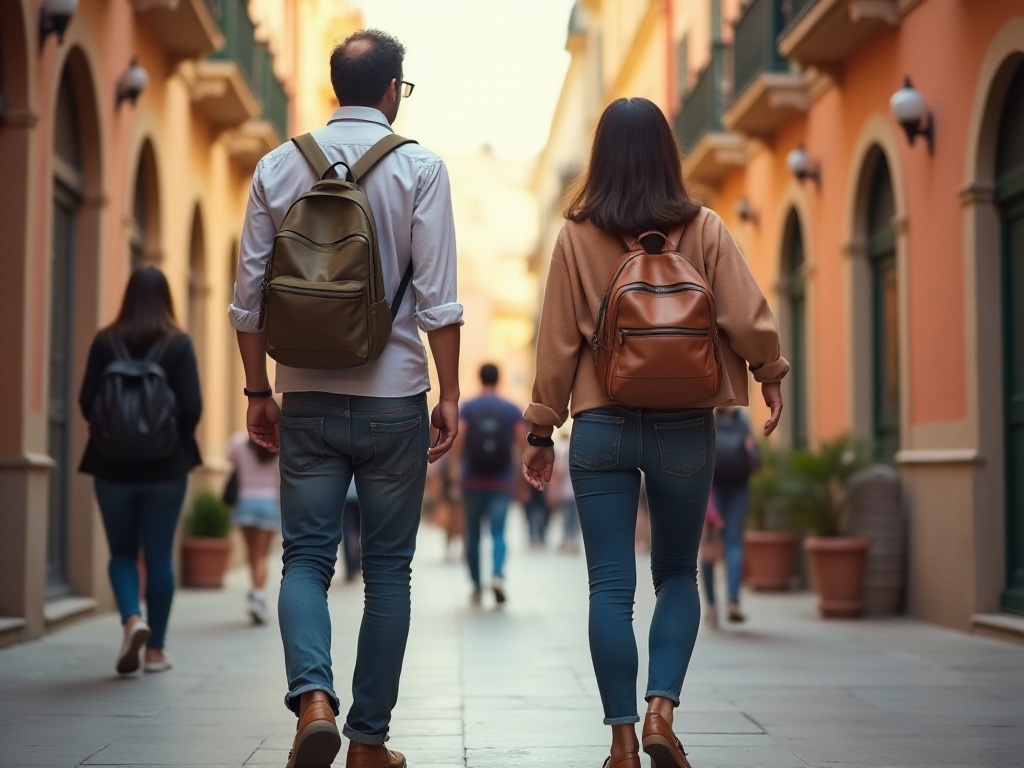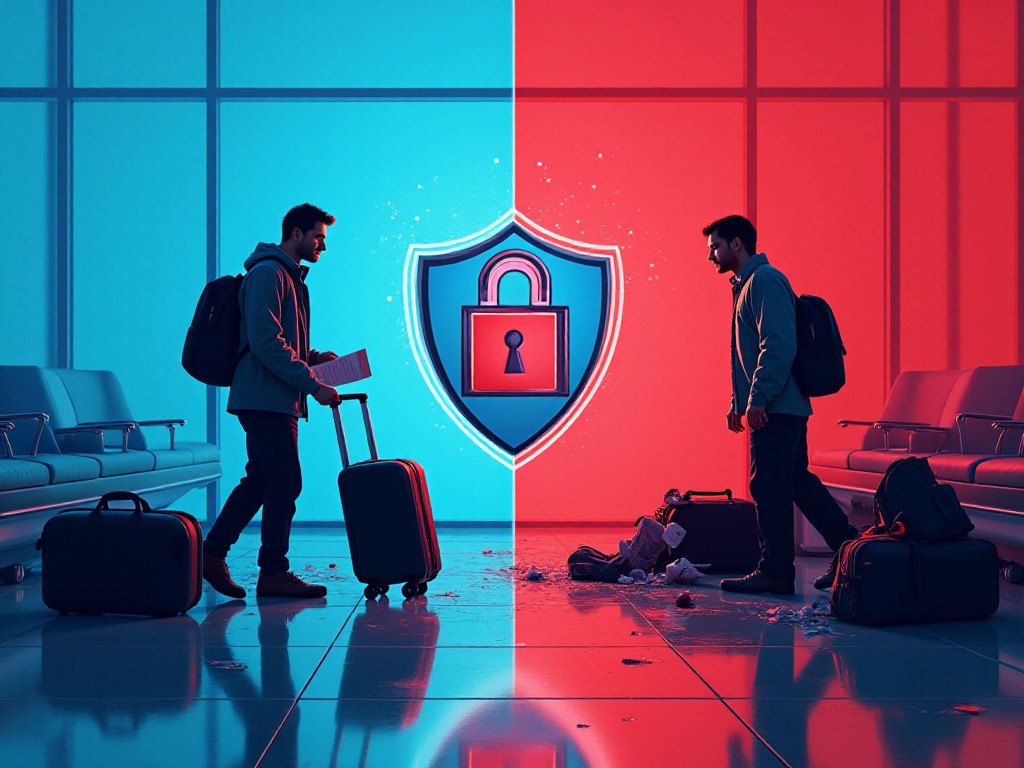
About Accommodation
Scrolling through social media, I'm always drawn to those exquisite hotel photos. Floor-to-ceiling windows in luxury suites, sunset views by infinity pools, stylish Nordic-designed rooms... These beautiful scenes are always captivating. But as a solo traveler, I know that safety comes first.
I remember my first solo trip to Southeast Asia. Naively thinking "I can find a place when I get there," I ended up hastily choosing a cheap motel after arriving late at night. It was an unforgettable night - the door lock was so loose it wobbled with a gentle push. Unsettling footsteps echoed in the hallway, accompanied by the slurred speech of drunk people. I stayed up all night, ears alert for any trouble, and checked out the next morning with huge dark circles under my eyes to find a more reliable hotel.
This experience taught me a valuable lesson. Since then, I've established strict accommodation rules: start researching accommodations at least a week in advance, carefully read other travelers' reviews, especially those from female travelers. When choosing accommodation, I pay special attention to several aspects:
First is location. The ideal location is in tourist-concentrated areas or busy commercial districts. These areas not only have convenient transportation but also high foot traffic and relatively better security. I use Google Maps to check if there are convenience stores, restaurants, and other facilities within 500 meters of the accommodation, so I won't have to walk through too many quiet streets when returning at night.
Second is security facilities. Today's accommodation review websites contain quite detailed traveler comments. I particularly look for mentions of door lock quality, room soundproofing, 24-hour front desk service, surveillance facilities, and other security-related content. If multiple reviews mention loose door locks, strangers knocking on doors at night, or dismissive staff attitudes, that place is immediately off my list.
I've also developed certain habits when booking hotels. For instance, I try to choose rooms above the second floor, as ground floor rooms are relatively easier to break into. If you're a solo female traveler, you can request a room near the elevator to avoid long corridor walks. Upon check-in, remember to check that all doors and windows close properly, and that balcony sliding doors have security chains installed.
Many people now prefer choosing vacation rentals, thinking they offer more local character and better value. However, I suggest solo female travelers be extra cautious when choosing such accommodations. Select hosts with high ratings and many reviews, preferably superhosts. Before check-in, always confirm the key handover method with the host - never accept "hidden key self-pickup" arrangements as they're not secure enough.
Additionally, it's important to understand the transportation situation around your accommodation in advance. I check specific routes from the airport or train station to the accommodation, download ride-hailing apps beforehand, and save local taxi company phone numbers. This way, I can handle even late-night arrivals with confidence.
Valuables
When it comes to protecting valuables, it's a major concern. According to the latest data from the International Tourism Association, over 40% of global travel safety incidents in 2023 were related to theft of valuables. This is no small number, yet many people still don't take it seriously enough.
My strategy for managing valuables is "divide and distribute." Cash should be stored in different places - some in the hidden pocket of your day bag, some in suitcase compartments, and some in the room safe. This way, even if theft occurs, losses can be kept within an acceptable range.
Credit cards are essential, and it's best to have at least two from different banks. I once had a card swallowed by an ATM, but fortunately had a backup card, otherwise it would have been quite awkward. Also, remember to call your bank before departure to inform them of your travel dates and destination to avoid having your card frozen due to suspected fraud.
The choice of document holder is also crucial. There are many anti-theft document holders on the market, and I recommend choosing one that can be worn close to the body and has RFID blocking functionality. These holders can block electronic scanning, preventing credit card information theft. Choose one with adjustable straps so you can adapt how you wear it for different situations, making it both convenient and secure.
In hotel rooms, don't leave valuables in obvious places. Even if there's a safe, don't put all your valuables in it. After all, hotel safes aren't 100% secure - there have been many cases worldwide of hotel staff using master keys to open safes.
I also have a habit of keeping my bag in a fixed position. Whether eating at a restaurant or relaxing in a cafe, the bag should be in front of you or on your lap, never hanging on the chair back or placed on the floor. In crowded places, backpacks should be worn on the front. For crossbody bags, wear the strap crossed over your body to make it harder for thieves to snatch.
Speaking of theft prevention, I'll share a small tip. When packing, you can buy a cheap wallet as a "decoy." Put some small change and expired membership cards in it, while keeping your real wallet in a more concealed place. If you do encounter a robbery, you can hand over this wallet, protecting both your safety and your valuables.
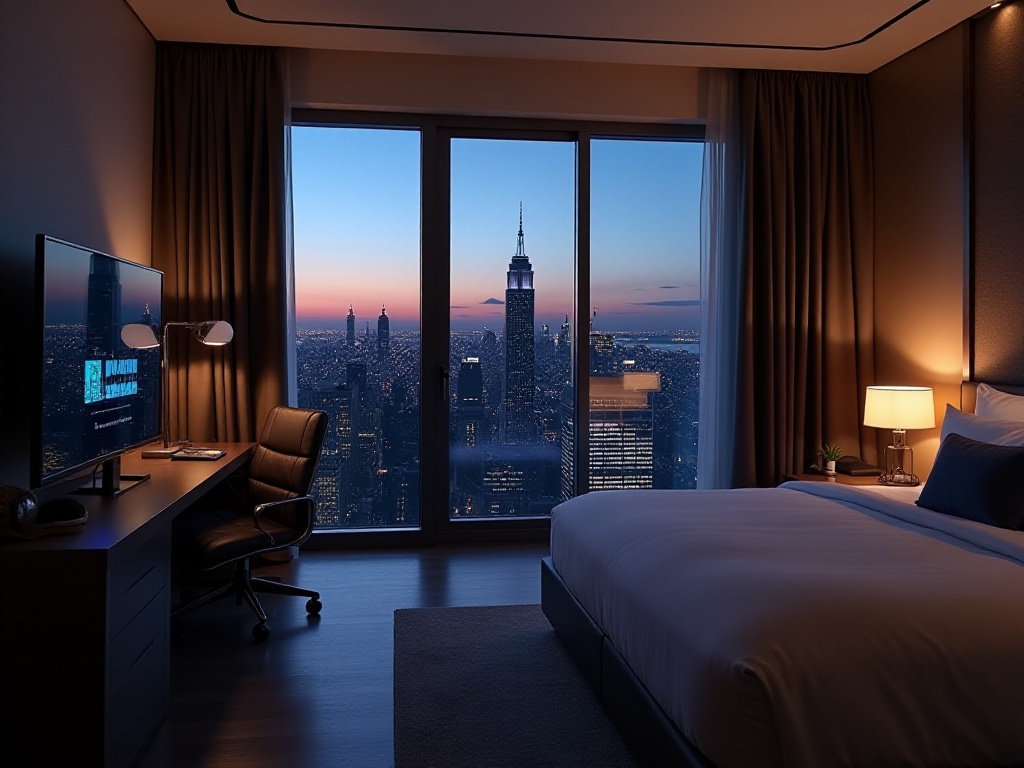
Avoiding Scams
Today's travel scams are incredibly diverse and hard to guard against. Statistics show that in 2023, 35% of global travel scam cases occurred near tourist attractions, 25% at transportation hubs, and the rest were distributed across restaurants, shopping areas, and other locations. These numbers tell us to be especially vigilant in tourist-heavy areas.
The "bracelet trap" I almost fell for in Paris is a typical example. A seemingly friendly "artist" enthusiastically offered to give me a handmade bracelet, saying it was to promote their handicrafts. I softened and reached out to accept it, and he immediately tied it around my wrist with lightning speed, then started demanding payment, claiming it was a special friendship bracelet that required payment once worn. Fortunately, I had small scissors with me (one of my travel essentials) and promptly cut off the bracelet and walked away quickly.
There are many similar scams. For instance, near tourist spots, someone might suddenly tell you there's dirt on your clothes, bag, or shoes and offer to help clean it, actually intending to steal from you or demand money. There are also fake police asking to check passports - real police usually wear uniforms and won't suddenly ask to see your documents.
You should also be vigilant in restaurants and while shopping. Some restaurants have special "tourist menus" with prices much higher than what locals pay. Ask about prices before ordering and point out any suspicious charges immediately. When shopping, especially in tourist area shops, make sure price tags are clear and avoid buying items without marked prices.
Remember one important principle: if it seems too good to be true, it probably is. If strangers are overly enthusiastic about helping, or if offers seem too tempting, it's likely a trap. Staying polite but firm in refusing is the best response.
When traveling abroad, language barriers often become opportunities for scammers. I recommend learning some local common phrases in advance, at least knowing how to say "no," "help," and "police." Many translation apps now work offline - download one as backup.
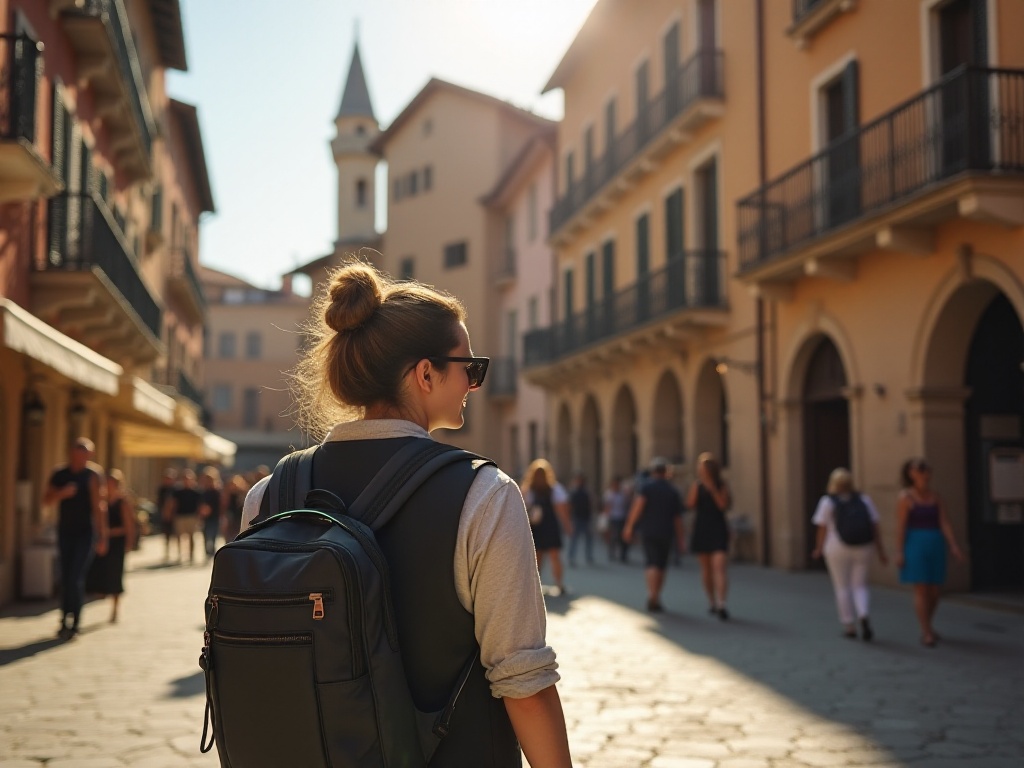
Document Security
Losing your passport is absolutely one of the worst things that can happen during solo travel. Let me break down the costs: first, there's the time cost - getting a temporary passport takes at least 3-5 working days, during which you can't go anywhere; then there's the financial loss - besides replacement fees, you might need to change flight schedules and extend accommodation, easily adding up to thousands in extra expenses. More importantly, it adds enormous psychological stress to your entire journey.
To avoid the hassle of lost documents, I now make thorough preparations. First is preparing copies - make two copies each of your passport and ID, carry one set with you and keep another in your suitcase. I also photograph these documents with my phone and upload them to cloud storage, so I can access them anytime, anywhere.
When checking in, many hotels require passport copies. Pay special attention at this time - watch the staff make the copy in front of you and retrieve your original immediately. If the hotel insists on keeping your passport, you can offer a copy instead or consider changing hotels.
Additionally, I prepare a special waterproof document holder for keeping my passport, tickets, insurance documents, and other important papers. This document holder stays in the inner pocket of my day bag and never leaves my side. When riding in vehicles or walking around, I regularly check to make sure my documents are still there.
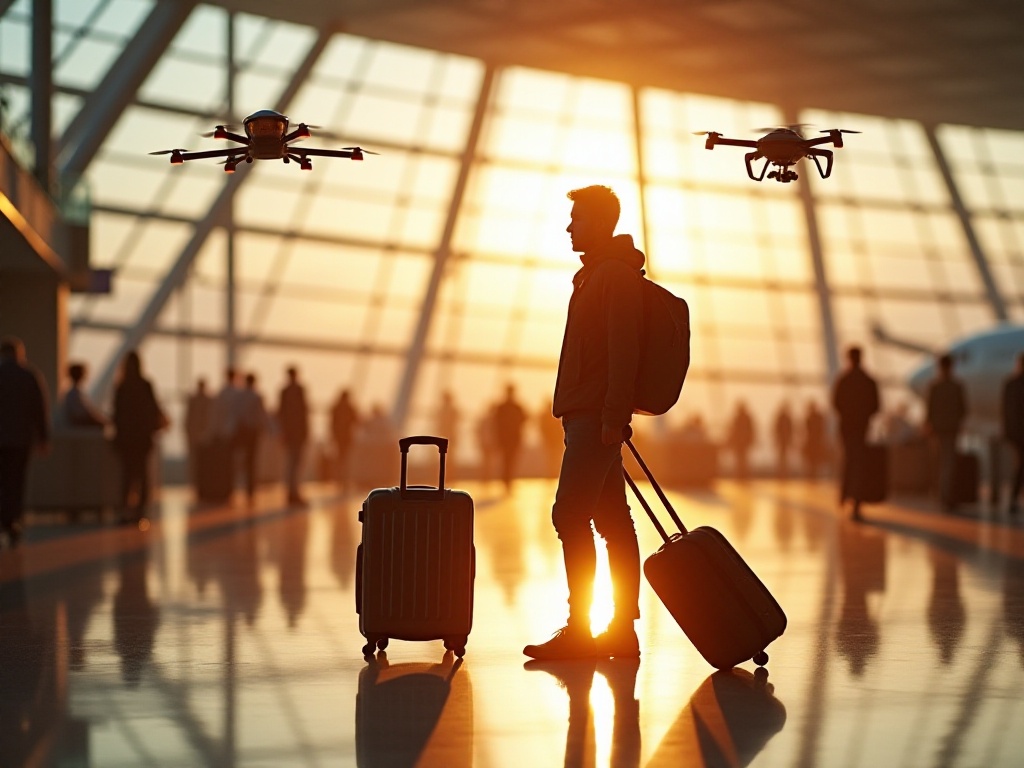
Emergency Plans
Honestly, many people find creating emergency plans troublesome, thinking accidents are far from them. But World Tourism Organization surveys show that over 60% of travelers don't make emergency plans before their trips. This statistic is truly worrying.
My emergency preparations are divided into several aspects. First is preparing emergency contact information - saving local emergency phone numbers on my phone, including: - Local police emergency number - Nearby hospital emergency numbers - Local Chinese embassy contact information - Hotel front desk phone number - Reliable local taxi company numbers
These numbers should also be written down and carried with you, in case your phone dies or gets lost. Additionally, I download offline maps of my destination so I can check locations even without network access. In countries with strict internet controls, downloading a VPN in advance is also necessary.
Before departure, I share detailed itinerary information with family and friends back home, including flight information, accommodation locations, and general sightseeing plans. During the trip, I maintain daily contact, even if it's just a simple safety message. This way, if something does happen, family members will know my last known location.
Medical preparation is also important. Besides regular medications, I check the locations of hospitals near my accommodation and understand local medical conditions. Some countries have very high medical costs, so it's essential to buy good travel insurance - I recommend choosing insurance products that include medical and emergency evacuation services.
At the destination, I pay special attention to remembering safety signs, such as emergency exits, police stations, and hospitals. If staying on high floors, it's best to familiarize yourself with the fire escape routes. Upon arriving in a new city, I mark safety locations on my map, such as police stations, hospitals, and embassies - these are places where you can seek help in emergencies.
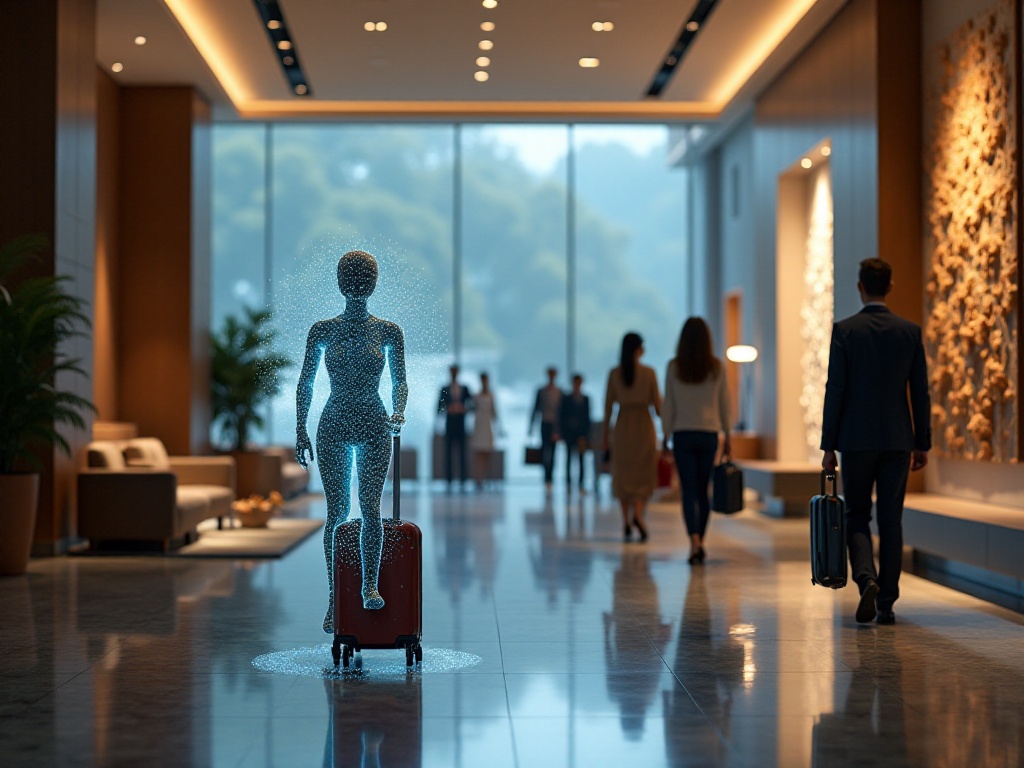
Final Thoughts
Solo travel is indeed full of unknowns and challenges, but with adequate preparation, you can still enjoy the happiness that travel brings. Through sharing this article, I hope to help more solo travelers develop safety awareness and learn to protect themselves while traveling.
Everyone has their unique travel experiences and safety tips. I look forward to seeing more travelers share their experiences, so we can all contribute to building a safer travel environment.
Remember, advance preparation is never wrong. I wish every solo traveler safe and happy explorations of every corner of the world.
Next
What's it Like to Travel Alone in Istanbul? Safety Tips and Practical Advice
A comprehensive guide covering pre-trip preparation, personal safety measures, accommodation security, financial protection, and emergency response procedures to help travelers minimize risks and ensure a safe journey
A Solo International Traveler's Safety Guide: From Pre-Trip Preparation to Emergency Response - Everything You Need to Know
A comprehensive travel safety guide covering pre-trip preparation, destination research, practical information gathering, personal security, financial safety, transportation safety, and emergency response protocols for a secure travel experience
Complete Guide to Self-Driving Tour in Tibet: Insights from a Veteran Driver's 20,000 Kilometers Experience
A comprehensive guide covering essential travel safety aspects, including pre-trip preparation, safety protocols during travel, emergency planning, and practical security advice for different groups of travelers
Next

What's it Like to Travel Alone in Istanbul? Safety Tips and Practical Advice
A comprehensive guide covering pre-trip preparation, personal safety measures, accommodation security, financial protection, and emergency response procedures to help travelers minimize risks and ensure a safe journey

A Solo International Traveler's Safety Guide: From Pre-Trip Preparation to Emergency Response - Everything You Need to Know
A comprehensive travel safety guide covering pre-trip preparation, destination research, practical information gathering, personal security, financial safety, transportation safety, and emergency response protocols for a secure travel experience

Complete Guide to Self-Driving Tour in Tibet: Insights from a Veteran Driver's 20,000 Kilometers Experience
A comprehensive guide covering essential travel safety aspects, including pre-trip preparation, safety protocols during travel, emergency planning, and practical security advice for different groups of travelers

